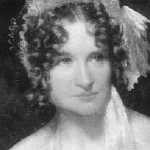MARIA NEFELE:
I walk in thorns in the dark
of what’s to happen and what has
with my only weapon my only defense
my nails purple like cyclamens.
ANTIPHONIST:
I saw her everywhere. Holding a glass and staring in space. Lying down
listening to records. Walking the streets in wide trousers and an old
gabardine. In front of children’s-store windows. Sadder then. And in
discotheques, more nervous, eating her nails. She smokes innumerable
cigarettes. She is pale and beautiful. But if you talk to her she doesn’t hear
at all. As if something is happening – she alone hears it and is frightened.
She holds your hand tight, tears, but is not there. I never touched her and I
never took from her anything.
MN:
He understood nothing. He kept asking all the time “Remember?” What’s to
I feel bad – how to say: unprepared. I found myself so suddenly, in life –
where I’d hardly expected. I’d say “Bah, I’ll get used to it.” And everything
around me ran. Things and people ran, ran – until I set myself to run like
crazy. But, it seems, I overdid. Because – I don’t know – something strange
happened in the end. First I’d see the corpse and then the murder. First
know what’s waiting...
A:
“Why don’t they bury people standing up like archbishops?” – that’s what
she’d say to me. And once, I remember, summer on the island, all of us
coming from a party, dawn, we jumped over the bars of the museum’s
garden. She danced on the stones and she saw nothing.
MN:
I saw his eyes. I saw some old olive groves.
A:
I saw a column on a grave. A girl in relief on the stone. She seemed sad
and held a small bird in her cupped hand.
MN:
He was looking at me, I know, he was looking at me. We both were looking
at the same stone. We looked at each other through the stone.
A:
She was calm and in her palm she held a small bird.
MN:
She was sitting and she was dead.
A:
She was sitting and in her palm she held a small bird.
You’ll never hold a bird like that – you aren’t able.
MN:
Oh if they let me, if they let me.
A:
If who let you?
MN:
The one who lets nothing.
A:
He, he who lets nothing
is cut by his shadow and walks away.
MN:
His words are white and unspeakable
his eyes deep and without sleep...
A:
But the whole upper part of the stone was taken. And with it her name.
MN:
ARIMNA – as if I could still see the letters carved inside the light...
ARIMNA EFE EL...
A:
Gone. The whole top gone. There were no letters at all.
MN:
ARIMNA EFE EL – there, on the EL the stone had cut and broken. I remember
it well.
A:
She must have seen it in a dream since she remembers.
MN:
In my dreams, yes. In a large sleep that will come sometimes all light and
heat and small stony steps. The children will walk in the streets arm in arm
like in some old Italian movies. song everywhere and enormous women in
small balconies watering their flowers.
A:
A large blue balloon will take us high then, here and there, the wind will beat
us. The silver domes will stand out first, then the belfries. The streets will
appear narrower and straighter than we imagined. The terraces with the
white television antennas. And all around the hills, and the kites – so close
we’ll just shave past them. Until one moment we’ll see the whole sea. On it
the souls will be leaving small white steams.
MN:
I have lifted my hand against the mountains, the dark and the demonic of
and not one rag to hide deep in our things and forget. Who listens? Who
listened? Judges, priests, police, which is your country? One body is left me
and I give it. On it those who know cultivate the holy, as the gardeners in
Holland, tulips. And in it drown who never learned of sea or swimming... Flux
of the sea and you stars’ distant influx – stand by me!
A:
I have lifted my hand against the
unexorcised demons of the world
and from the place of illness I have exited
to the sun and to the light self-exiled!
MN:
And from too many storms I’ve exited
self among humans exiled!

















Comment form: